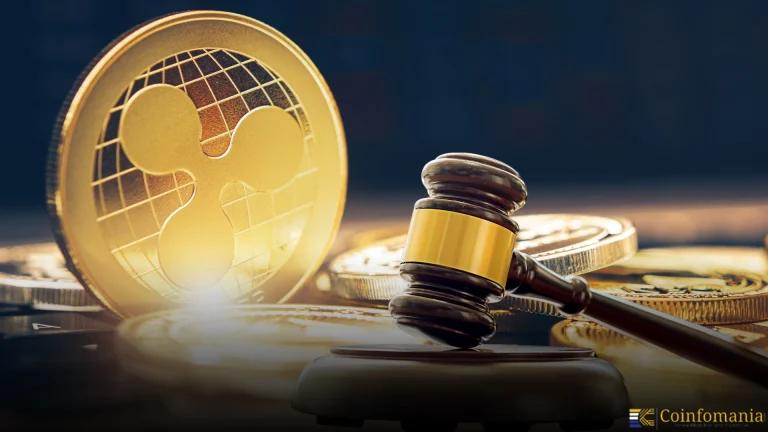Cryptocurrency Regulations in Germany
When it comes to cryptocurrency regulation, Germany is anchored. It allows trades and investments in crypto using strong consumer and financial safeguards. Bitcoin and other cryptocurrencies are perfectly legal, but they are not recognized as legal tender. As registration, taxation, anti-money laundering compliance and other aspects of German crypto law are still obligations, investors, businesses […]

When it comes to cryptocurrency regulation, Germany is anchored. It allows trades and investments in crypto using strong consumer and financial safeguards. Bitcoin and other cryptocurrencies are perfectly legal, but they are not recognized as legal tender.
As registration, taxation, anti-money laundering compliance and other aspects of German crypto law are still obligations, investors, businesses and users of this promising industry should understand how recognition of cryptocurrencies is coming into effect.
Public authorities include BaFin (Federal Financial Supervisory Authority), among other key authorities that regulate financial services, and the Federal Ministry of Finance, whose responsibility is the policy and tax guidelines. Germany is also covered by the EU’s Markets in Crypto-Assets Regulation (MiCA), which came into play in December 2024.
Historical Context
Germany has been fairly early in supporting crypto and officially recognized Bitcoin as a unit of account in 2013. It was used for private payments but not as legal tender due to this.
It was not long afterwards that BaFin gave clear guidance, specifying that crypto assets qualify as financial instruments and that service providers need licenses. As of 2020, crypto custody businesses need BaFin authorization.
Germany’s regulations will now be EU-wide with the adoption of MiCA expected to be ratified in December 2024. It represents a new stage in the shift of the country from national rules to a set European framework based on innovation and risk control.
Regulatory Framework
There are several institutions in Germany’s regulatory approach.
- Exchanges, such as custodians, token issuers, and wallet providers, are regulated by BaFin.
- Tax policies are under the purview of the Federal Ministry of Finance which also coordinates with EU crypto rules.
- Bundesbank: Works on monetary issues, including creating a digital currency.
Licensing and Registration
According to MiCA, crypto service providers must be registered with BaFin and governed by the usual rules of financial services. This pertains to wallet providers, exchanges, and custodians as well as token issuers.
AML & KYC Requirements
Germany enforces strict AML/KYC laws. Businesses must carry out customer due diligence, report suspicious activities and implement the EU Transfer of Funds Regulation that includes the travel rule for crypto.
Taxation
Profits from crypto held for 12 months are tax-free for individuals. Income taxes are imposed on shorter holding periods.
VAT: Do not apply to the exchange of legal currencies to crypto, but do apply to goods/services bought with crypto.
ICOs and STOs
If they qualify for the Securities Prospectus Act, then BaFin considers ICOs securities or investment products. Prospectuses are mandatory in cases of Security Token Offerings (STOs) which need the approval of BaFin.
Germany Crypto Policies
In Germany, cryptocurrencies may be used for investment, trading and payments between private parties, but the tax payment may not be made with crypto. There are regulatory and AML obligations for anyone operating in crypto businesses.
While crypto mining is legal, the operators need to abide by the regulations surrounding financial matters, energy, and tax. Income from mining is taxable, but there is no specific mining rule, and large scale operations will require business registration.
Germany is also involved in the European Central Bank’s (ECB) ongoing digital euro project, which aims to assess the possibility of a eurozone-wide CBDC. As of April 2025, the discussion is ongoing about the digital euro.
This would mean that Germany or EU crypto rules could also impose administrative fines, suspend the business, or even criminalize non-compliance.
Germany’s Approach to Crypto Innovation
The regulatory clarity of Germany and its involvement in the EU digital finance strategy are tools for supporting innovation. Fintech startups get the benefit of guidance and sandbox initiatives from BaFin that direct them on how to regulate without sidestepping consumer protections.
German banks, fintechs and financial institutions are increasingly recognizing crypto adoption and some now offer crypto custody and trading services.
Blockchain applications are supported by the government in logistics, energy and finance. The launch of Germany’s Blockchain Strategy 2019 conditioned public-private cooperation and innovation.
Notable Challenges and Issues
One problem is the integration of rules at the national and EU level. MiCA is set to bring in crypto regulation with unified laws, but the emerging laws may overlap during this transition.
The concern still existing is the enforcement, especially when it comes to cross-border services and decentralized platforms that could make an effort for not being licensed or AML regulated.
Yet, there is a cautious but improving public perception in Germany. Transparency and education are key tenets promoted by regulators, while the younger, more tech-savvy population continues to adopt them.
Regulatory Trends and Future Outlook
Several national frameworks had been replaced by Germany as it started using the EU’s MiCA regulation in December 2024. As MiCA rolls out over the coming years, it will continue to be sharper in regulating stablecoins, asset-backed tokens, and crypto services.
By 2025, BaFin and the Ministry of Finance are also expected to further issue guidelines on staking, DeFi platforms, and cross-border digital asset transfers.
Germany’s lead is shaping EU standards, which may indeed set a trend globally. Germany is Europe’s largest economy and is a country that is in a position to take the lead in digital finance policy within the eurozone and the global context.
Conclusion
Germany has a regulated environment for cryptocurrency, providing an innovation-friendly environment with very strong institutions such as BaFin and is in line with EU law through MiCA. Although regulations are tight, they are designed to win trust and safeguard users.
Being informed about licensing, taxation and AMLs regulations is essential for investors and businesses alike. As Germany’s role develops in the EU digital asset ecosystem, this country takes a noteworthy position in the world of crypto development.
Frequently Asked Questions (FAQs)
1. Is Bitcoin legal in Germany?
Yes, it is legal, and it is a unit of account; however, it is not legal tender.
2. Do you need a license as a crypto business in Germany?
Yes, you need a license, in fact, most services are licensed under the BaFin and MiCA rules.
3. Is crypto taxed in Germany?
Yes. After a year of holding, individuals will be able to qualify for tax exemptions. Standard rules apply to business.
4. Can I pay taxes with crypto?
No. Cryptocurrencies cannot be used to pay taxes — taxes can be paid with only Euros.
5. Are ICOs allowed in Germany?
Yes, as long as they are not classified as security, prospectuses and BaFin approval may be required.
6. Is mining allowed in Germany?
Yes. However, mining is legal if it abides by all the tax and business laws.
7. Does Germany follow MiCA rules?
Yes. MiCA started being applied in Germany in December 2024.
8. Is there a CBDC in Germany?
There is no CBDC in Germany yet. The ECB’s digital Euro research is taking part with Germany.
9. Do any stores accept crypto payments?
Crypto is not widespread, but some businesses accept it.
10. How does it affect me if I operate without a license?
You should be prepared that BaFin may impose fines, temporary shutdowns or legal proceedings against you if you are operating without a license.
Follow us on Google News
Get the latest crypto insights and updates.
Related Posts

Ripple Highlights Custody as Key to $18.9T Tokenized Assets by 2033
Shweta Chakrawarty
Author

Hong Kong SFC Issues New Custody Rules for Crypto Platforms
Shweta Chakrawarty
Author

South Korea and Vietnam eye $150B trade despite Trump tariff
Shweta Chakrawarty
Author